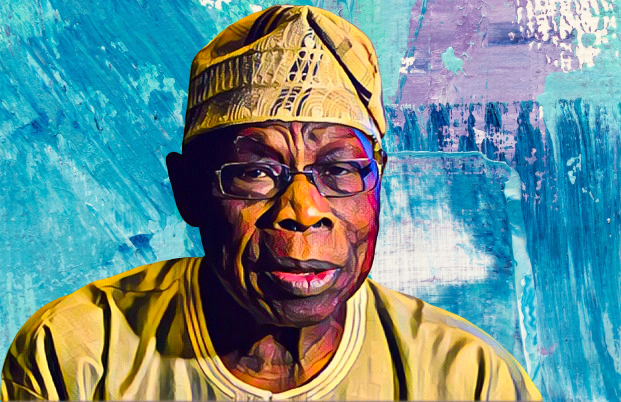Olusegun Obasanjo, the former president, has publicly criticized President Bola Tinubu’s economic policies, focusing in particular on the poor handling of the naira and the elimination of the petroleum subsidy. During his speech at the Paul Aje Colloquium in Abuja, Obasanjo voiced his worries about these policies and how they might affect the stability of Nigeria’s economy.
In a statement issued by Kehinde Akinyemi, his Special Assistant on Media, Obasanjo criticized the government’s strategy, arguing that although the decisions to cut the naira and remove the subsidy were necessary, they were not carried out correctly, further hurting Nigerians’ already precarious economic situation.
Additionally, Obasanjo expressed his displeasure with Nigeria’s diplomatic response to the recent coup in the Republic of Niger, pointing out that the present administration’s foreign policy is ineffective. In addition, he responded to criticism of his position on the renovated refinery in Port Harcourt, labeling his opponents as “sycophants and spin doctors.” He defended his previous choice to sell the refineries, claiming that it was supported at the time by a careful examination.
To lead the nation toward sustainable progress, Obasanjo urged the establishment of a 25-year development program, highlighting the necessity of a thorough and deliberate approach to national challenges. He underlined that rapid fixes alone would not be sufficient for economic recovery; instead, a change in the production and productivity sectors, spearheaded by a government that inspires trust and confidence among citizens and investors alike.
“The government’s current policies might have been well-intentioned, but their poor implementation has only impoverished the economy and its people further,” Obasanjo noted. He criticized the leadership’s failure to establish a reliable environment for investment, pointing out that major investors like Total Energy have chosen to invest in other countries like Angola due to a lack of confidence in Nigeria’s economic management.
Obasanjo stressed the importance of consistent and continuous policies that ensure stability and predictability, which are crucial for attracting both domestic and foreign investment. He called for a shift from “transactional leadership” to “transformational and genuine servant leadership,” which he believes is essential for achieving economic progress and attracting new investments.
“Investors must witness a government that upholds honesty and openness in all of its business dealings and agreements. They will not be open to trying things out till then, he continued. Obasanjo emphasized that comprehensive reforms addressing the core problems of governance and economic management should be the main emphasis of economic policies rather than merely adjusting exchange rates.
The outgoing president emphasized the possibility of change in his parting words, but it must start with real and strong leadership. He argued in favor of a leadership approach that puts the welfare of the populace first and fosters an atmosphere that is favorable to economic expansion.



